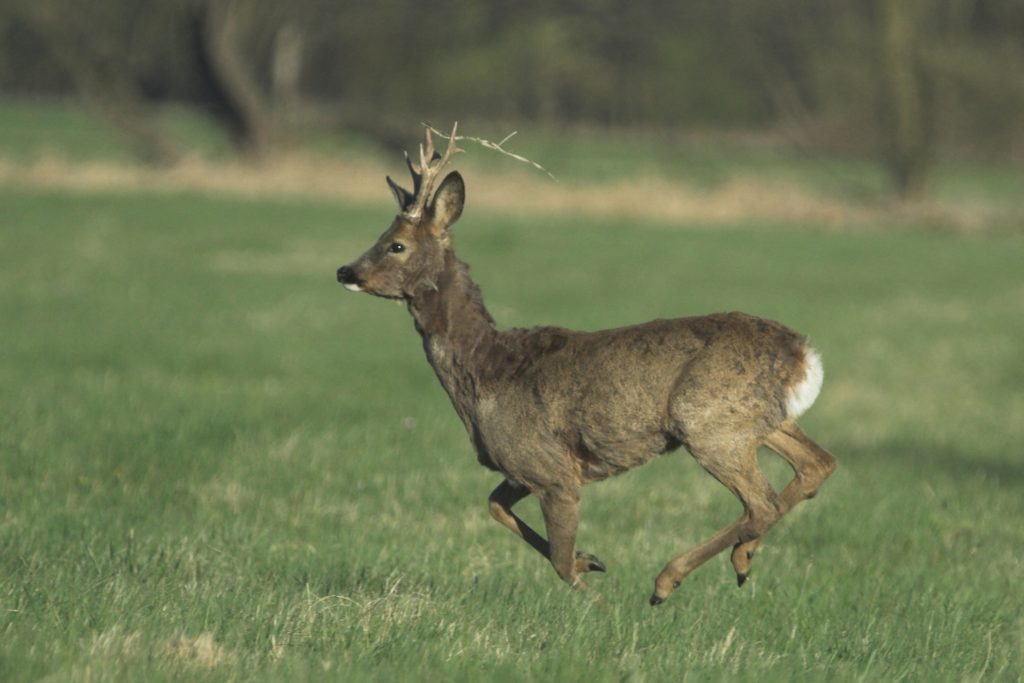SCI Foundation and the Lusitânia Chapter of SCI recently signed an agreement to support important wildlife conservation and research activity in Portugal. The project involves translocation of roe deer to private forest lands in eastern Portugal where this species has been greatly reduced in abundance historically. Important partners in the effort include the Portuguese Institute for Nature Conservation and Forests, Altri and other private landowners that manage the land sustainably for wildlife and renewable natural resources such as wood fiber and cork, Universidade de Trás-os-Montes, and local hunting associations. In addition to being one of Europe’s most important and iconic game species, the roe deer is an integral part of regional ecosystems and a critical prey species for avian and terrestrial predators and scavengers. By supporting projects like this one, SCI Foundation seeks to promote science-based wildlife management in Europe and emphasize the role of European hunters in conservation.
The project area consists primarily of privately owned forests and woodlands in the Malpica de Tejo, Monforte de Beira, and Beira Baixa areas of east-central Portugal along the border with Spain. These areas are managed for sustainable production of agricultural and forestry products and support populations of important game species such as red-legged partridge, wild boar, and Iberian red deer. Roe deer were also an important species historically but persist only in small populations currently. This area along the Tagus River provides critical habitat for large birds of prey during migration and wintering periods, including several species listed as being of conservation concern on the IUCN Red List such as Spanish imperial eagle (Vulnerable), cinereous vulture (Near Threatened), and Egyptian vulture (Endangered). Although the area does not currently support Iberian wolves or lynx, these apex predators may expand their range in the future if appropriate habitat conditions exist. Reestablishment of roe deer to the region could provide additional food resources during critical periods of the annual cycle for these species.
To be successful, any wildlife translocation must be based in a scientific assessment of habitat conditions and local knowledge of carrying capacity for the species to be introduced. Therefore, Professor Aurora Monzone from Universidade de Trás-os-Montes and her students will be an important member of the project team. We will start with a systematic assessment of the vegetative community and current roe deer population at several potential sites to determine those most suitable for roe deer introduction. Once the best areas are identified, between 50 and 100 Iberian roe deer from the GeoPark Terras de Cavaleiros in the Trás-os-Montes region of northeastern Portugal will be translocated to acclimation pens where they will be provided food and water. After adjusting to conditions in their new home, the roe deer will be released to establish new and healthy local populations. A portion of the released deer will be fitted with satellite radiocollars to allow monitoring of their movements, survival, and reproduction and this monitoring will continue for several years following initial translocation.
SCIF and the European chapters of SCI are proud to initiate this important conservation project. Funding for the project comes from SCI Foundation, the Hunter Legacy Fund 100 Endowment, the SCI Europe Committee, and the SCI Lusitânia Chapter. This is only one of several conservation efforts underway in Europe as we continue to expand our activities around the world. Hunters and SCI members are at the forefront of supporting conservation efforts, and SCI Foundation remains First for Wildlife in Europe, North America, Africa, and all over the globe.

